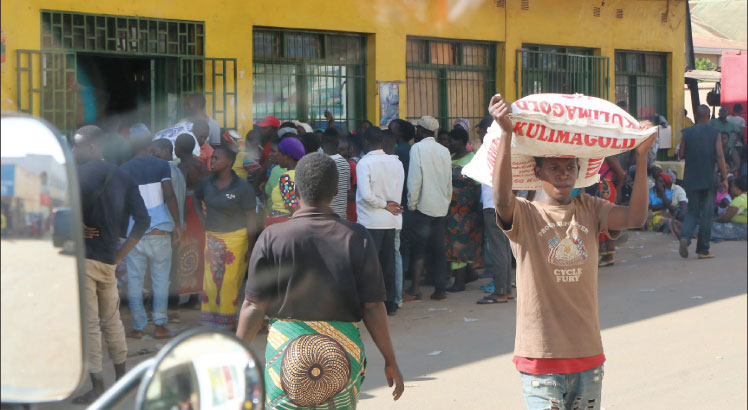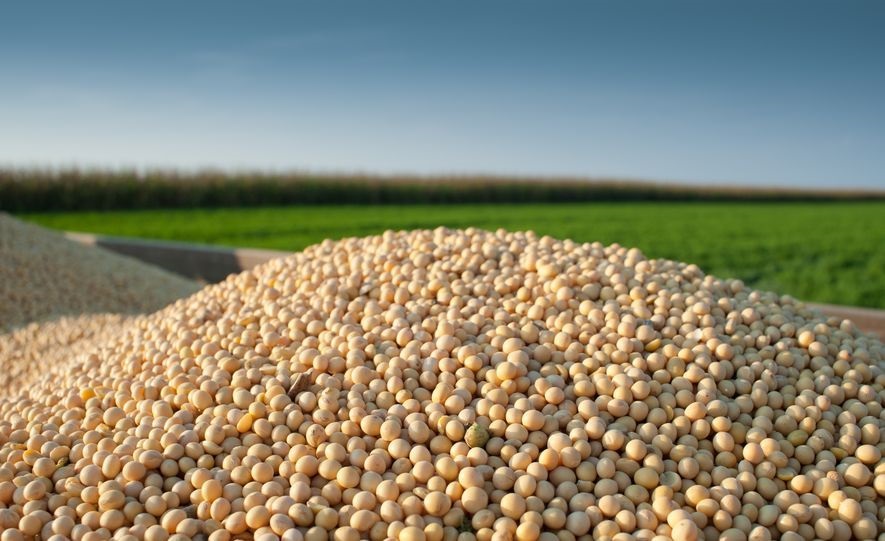Some industry players have backed the government’s move to enter into a commodity exchange or barter agreement with a Romanian company for the supply of fertiliser as Malawi continues to scramble to manage a balance of payment crisis and rein in skyrocketing inflation.
In an interview on Sunday, agriculture policy think-tank, Mwapata Institute executive director William Chadza, observed that all things being equal, the deal takes away the need for foreign exchange, which in turn, removes pressure on forex and releases forex for other things
A farmer carries home a bag of fertiliser
under the 2022/23 subsidy programme
He said: “The removal of the need for forex increases chances of having the commodity delivered in Malawi on time [all things being equal] because importers don’t have to wait for long lags before they are able to raise enough forex to service their contracts.
“It also creates a huge market for locally produced commodities involved in the deal. This in turn potentially significantly improves prices that farmers receive for their commodities. Significantly improved prices increases farmers’ ultimate returns [all things being equal].”
However, Chadza said the direct involvement of the government in the deal takes away the role of the private sector in the agriculture subsidy programme and increasing prices of crops like soya beans is likely to put enormous pressure on edible oils as soya beans are an input in the edible oil industry.
“More so considering that Malawi produces around 400 MT [metric tonne] of soya beans through smallholder farmers. With these deals, more than half of this will be taken up, ramping up the pressure on cooking oil prices,” he said.
On her part, Grain Traders Association of Malawi president Grace Mijiga Mhango observed that if it can work, the barter trade can better the economy and livelihoods.
She said: “For starters it is happening when the country has no forex to buy fertiliser. If it’s true that it will land at K900 per kilogramme (kg), which works out to be K45 000 per bag, it will reduce input costs while also ensuring supply of clean fertiliser.
“Besides, this barter trade will help provide a definite market to farmers and traders, but this needs the government to come in and shed more light so that we can align ourselves to this programme.”
Minister of Agriculture Sam Kawale told our sister paper Nation on Sunday that government has offered East Bridge Estate a deal to supply 600 000 MT of fertiliser worth $124.5 million (about K128 billion).
The Romanian company is expected to supply 300 000 MT of Urea and 300 000 MT of NPK under a commodity exchange/barter agreement in a contract to run until July 24 2024.
In the deal, government will pay through the supply of farm commodities.
Speaking separately, commercial farmer Felix Jumbe worried that the deal could hit local fertiliser suppliers hard.
“Consequently, this has the effect of killing the existing fertiliser industry and its accessories that were building up with the previous Fisp project,” he said.
On his part, commercial farmer and agricultural economics student Frederick Changaya observed that the proposed barter trade may not be corrupt as other quarters are suggesting.
He said: “I hope it was not arithmetically, but econometrically assessed for overall impacts of the two choice areas and that we have double dividends as farmers benefit locked in customers and then the economy-wide impacts of food availability plus related benefits.”
On her part, Nasfam chief executive officer Bettie Chinyamunyamu observed that it is difficult to say now whether this will benefit smallholder farmers because the Ministry of Agriculture has not yet formally engaged them on this matter
Her counterpart, Farmers Union of Malawi chief executive officer Jacob Nyirongo also said they were yet to see the contract, therefore, it was difficult now to determine how farmers will benefit.
The post Farmers, industry players upbeat on barter deal first appeared on The Nation Online.
 Moni Malawi
Moni Malawi 

